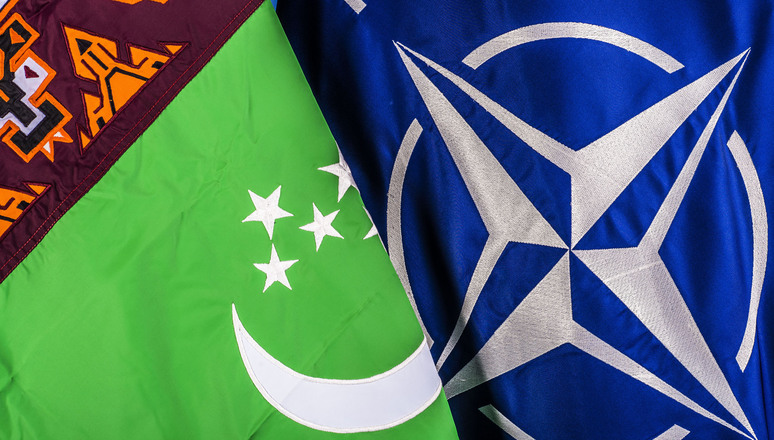Relations with Turkmenistan
Turkmenistan’s cooperation with NATO aims to introduce and familiarise Turkmen personnel with key NATO security-related issues, as well as enhance cooperation in areas such as border control and security, science and environmental issues, and civil preparedness.

Highlights
- Turkmenistan adheres to a policy of permanent neutrality and does not offer any armed forces units or infrastructure for use in the context of NATO-led operations.
- Relations with Turkmenistan started in 1992, when the country joined the North Atlantic Cooperation Council. This forum for dialogue was succeeded in 1997 by the Euro-Atlantic Partnership Council, which brings together all Allies and partner countries in the Euro-Atlantic area.
- Practical cooperation began when Turkmenistan joined the Partnership for Peace (PfP) programme in 1994.
- Objectives for practical cooperation are set out in an Individual Partnership Cooperation Programme (IPCP), which is renewed every two years.
Key areas of cooperation
Turkmenistan’s cooperation with NATO is mutually beneficial and includes:
Building capabilities and interoperability
- Based on its policy of permanent neutrality, Turkmenistan does not offer any armed forces units to NATO-led operations.
- Officials from Turkmenistan participate in a range of courses provided by NATO and NATO member states. Topics covered include arms control, disarmament and non-proliferation, the law of armed conflicts, courses aimed at familiarising officers with combating terrorism techniques and illegal trafficking issues, border security and control, defence planning and budgeting, language training, medical services and other areas.
Wider cooperation
- Civil preparedness and disaster-relief coordination is also an area of cooperation. It is also working to prepare Turkmenistan’s units to contribute to international disaster relief operations. In 2014, Turkmenistan responded to an urgent request for assistance by NATO’s Euro-Atlantic Disaster Response Coordination Centre (EADRCC), contributing humanitarian aid to Bosnia and Herzegovina following major flooding and landslides.
- Turkmenistan has been engaged with the NATO Science for Peace and Security (SPS) Programme since 1993. Fostering internet connectivity of the academic community and distance learning has been a priority area of cooperation.
- NATO continues its information and outreach activities with Turkmenistan. In 2015, Turkmenistan hosted a landmark forum on NATO-Central Asian relations, which included participants from Turkmen universities and other security experts.
